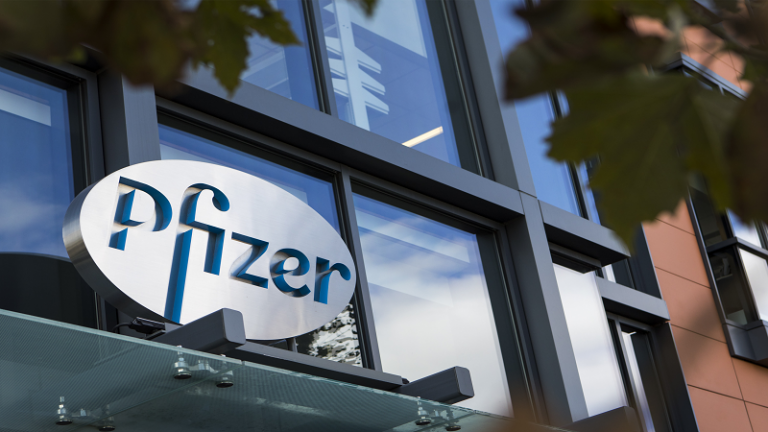
The UK has authorized the use of Pfizer vaccine as it fights to contain the spread of COVID-19, becoming the first western country to license a vaccine against the virus.
The Medicines and Healthcare products Regulatory Authority (MHRA), authorized the emergency use of the vaccine following the announcement of its 95% efficacy by Pfizer.
Last month, Pfizer and BioNTech announced that clinical trials proved the vaccine to be over 90% effective, and they were waiting for regulator’s authorization for it to be administered.
Register for Tekedia Mini-MBA edition 19 (Feb 9 – May 2, 2026): big discounts for early bird.
Tekedia AI in Business Masterclass opens registrations.
Join Tekedia Capital Syndicate and co-invest in great global startups.
Register for Tekedia AI Lab: From Technical Design to Deployment (next edition begins Jan 24 2026).
With the result of the final trial, MHRA was given power to approve the vaccine by the government under special regulations before January 1, when it will be fully responsible for medicines authorization in the UK after Brexit.
The UK secured 40 million doses and is poised to start vaccinating next week following the recommendation of MHRA.
“The government has today accepted the recommendation from the MHRA to approve Pfizer/BioNTech’s COVID-19 for use. This follows months of rigorous clinical trials and a thorough analysis of the data by experts at the MHRA who have concluded that the vaccine has met its strict standards of safety, quality and effectiveness,” said a Department of Health and Social Care spokesman.
“The Joint Committee on Vaccination and Immunization will shortly also publish its latest advice for the priority groups to receive the vaccine, including care home residents, health and care staff, the elderly and the clinically extremely vulnerable. The vaccine will be made available across the UK from next week.”
The UK has come under decimating impact of the pandemic that has brought its economy on its knees as the government struggles to contain the second wave. The news of the Pfizer vaccine came as a relief in the face of government’s helplessness: faced with the dilemma of choosing between economy and life, the UK has been reeling from the mercy of the disease.
The vaccine is given as two injections, 21 days apart, with the second dose being a booster. Immunity is expected to kick in after the first dose and reach its full effect seven days after the second dose.
The health secretary Matt Hancock described the development as “fantastic news” and said the vaccination will start next week with the most vulnerable people.
“This is fantastic news. The MHRA, the fiercely independent regulator, has clinically authorized the vaccine for rollout. The NHS stands ready to make that happen,” he told Sky News. “From early next week we will start the programme of vaccinating people against COVID-19 here in the country. The MHRA has approved it as clinically safe and we have a vaccine, so it’s very good news.”
One of the greatest challenges of the Pfizer vaccine is the storage that requires a temperature of -70C, but it is not something the health ministry is not prepared for. Hancock said hospitals have been equipped with refrigerators to store the vaccine at the needed temperature.
On the other side of the good news is the announcement of the Moderna vaccine , whose efficacy is at 100%. Though the United States and the rest of the western countries are yet to approve it for use, it offers more hope to the world ravaged by the pandemic. The UK has secured seven million doses of the vaccine.
The Pfizer and BioNTech vaccine was developed in a record period of time that defied decade long norm. It thus provides succor to the raging health crisis that has thrown the UK government off.
On Wednesday, 648 deaths were recorded within 28 days of COVID-19 test, and 16,170 new cases were reported in the UK.
While the world celebrated the news, the World Health Organization’s Dr. David Nabarro said the Pfizer vaccine would not replace the other measures for long; “so we’ll have to keep doing the physical distancing, mask wearing, hygiene and isolating ourselves when we are sick.”
However, the UK has found a path to victory in its fight against COVID-19. Hancock said although the government doesn’t know how many people who need to be vaccinated before restrictions could be lifted, he is confident that from spring, from Easter onwards, things are going to be better.
Prime Minister Boris Johnson said: “it’s the protection of vaccines that will ultimately allow us to reclaim our lives and get the economy moving again.”
The UK economy slumped by 20% in the second quarter 2020 to record its worst performance since 1955, plunging the country into its deepest recession since 2009.
Sports and hospitality business are among the hardly hit sectors of the UK economy. Football games have been played behind closed since last season while restaurants and travels have been shut or limited. The government believes the vaccine will help lift the restrictions and allow people the freedom to engage in these businesses.



